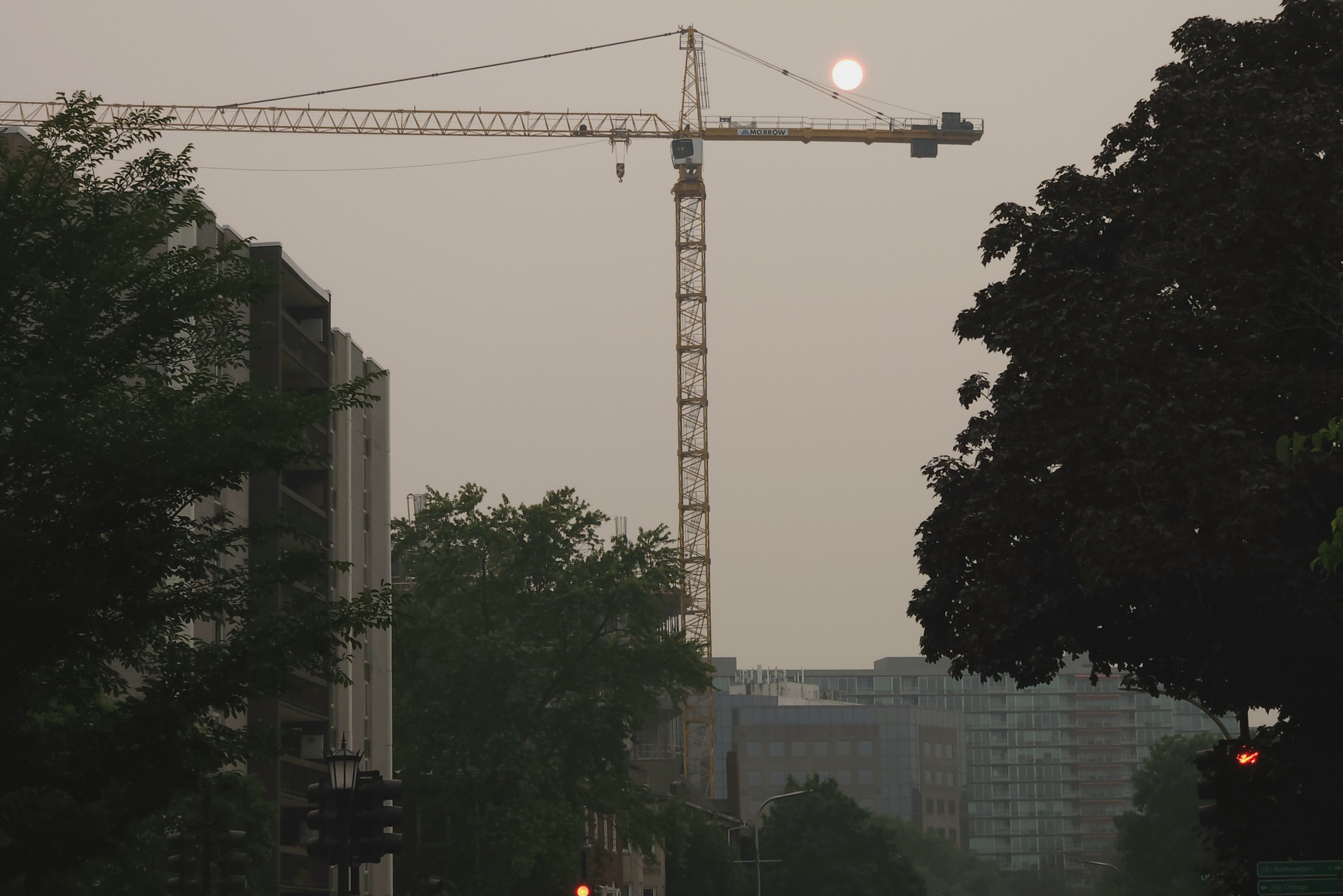As the smoke from Canadian wildfires continues to spread through the American Midwest, I want to mention that the effective use of government regulation of industry has made this week's air quality that much more surprising. Just take a look at Evanston, Ill., yesterday around 7pm:

The fact that this looks really weird says a lot about what the government can do when people are behind it.
No, really: the air-quality alerts from Minnesota to West Virginia look bizarre right now because we hardly ever see AQIs above 150 these days. In my lifetime, even 35 years ago, Chicago looked like this all the time.
The Chicago Tribune reported on this incredible change in 2015:
As early as 1874, as the city rebuilt after the Great Fire of 1871, the Tribune warned that the huge increase in factories and hotels, and the new skyscrapers with their steam-powered elevators, was a serious problem. "So dense is this volume of smoke that, unless there is a brisk, stirring breeze, the whole of it settles down in the central part of the city and leaves its dirty imprint," the editorial said.
Civic leaders, including the editors of the Tribune, crusaded tirelessly against the "smoke horror."
It is hard to know how often the sun lost its battle to shine — though it happened regularly into the 1950s — because the Tribune wrote stories only when it was unusually bad. On Jan. 18, 1925, the newspaper reported the pall that turned day into night was "the densest, thickest and darkest smoke screen which has been thrown over the city this season." The "plague of darkness" on Dec. 7, 1929, was caused by low-hanging clouds, fog and "the customary smoke screen."
And the power needed to light the day meant Commonwealth Edison had to burn even more coal.
By the late 1960s people had had enough. So finally, in 1970, Congress unanimously (except for one demon from the 3rd Circle of Hell) passed the Clean Air Act, starting a decades-long process of cutting emissions and switching from dirty power sources that continues today.
In 1980, ten years after the Clean Air Act passed, Los Angeles had only 6 days with AQIs below 50 but 206 above 150. (I know, because I was there for many of them.) In 2021, LA had 41 days below 50 and only 27 above 150.
This week we have unhealthy air due to natural pollution from an unusual combination of record wildfires in Canada and a weather system blowing the smoke south. Air quality should return to normal (or even healthy) by the weekend. But absent bipartisan regulation 53 years ago, it would look like this (or worse) more than half the year.
So when I say I want a real opposition party and not the whackadoodle nihilists currently destroying their constituents' faith in government, this is why.